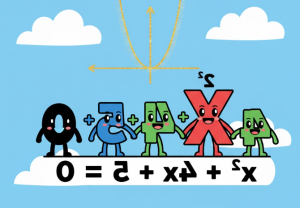
The Dilemma of ADHD Medication in Preschoolers: Navigating the Treatment Maze
Recent discussions in school psychology have highlighted significant concerns about the treatment paths for preschoolers diagnosed with Attention-Deficit/Hyperactivity Disorder (ADHD). While behavioral therapy is recommended as the first line of treatment, many young patients are medicated immediately after diagnosis due to various systemic issues. This blog post delves into the complexities of ADHD medication in preschoolers, exploring current trends, challenges, and potential pathways to better treatment practices.
Understanding ADHD in Young Children
ADHD is a developmental disorder characterized by symptoms such as inattention, hyperactivity, and impulsivity. Diagnosing and treating ADHD in young children, particularly those aged 3 to 5, requires careful consideration. According to a CDC report, about 32% of children with ADHD receive both medication and behavioral treatment, though the first approach should ideally be therapy-focused.
Current Treatment Practices
Research from Stanford Medicine has found that many preschoolers with ADHD are being prescribed medication, such as stimulants and alpha-2-adrenergic agonists, before giving behavioral therapy a full chance to work. This practice diverges from the American Academy of Pediatrics guidance, which advises starting with behavioral interventions.
The Role of Behavioral Therapy
Behavioral therapy is a cornerstone in managing ADHD, especially in young children. This approach focuses on modifying specific behaviors and enhancing the child’s capability to manage symptoms without medication. Programs such as parent training, classroom management, and peer interventions are critical.
Challenges to Implementing Therapy
The effectiveness of behavioral therapy hinges on availability, but access can be impeded by limited resources, inadequate insurance coverage, and geographical constraints. As a result, overwhelmed practitioners may opt for medication, which offers quicker results but comes with long-term considerations.
The Research Behind Medication Use
Studies, such as the Pharmacotherapy of the Preschool ADHD Treatment Study (PATS), have explored the outcomes of pharmacological interventions in young children. While some medications can enhance focus and control hyperactive behaviors, the long-term side effects remain insufficiently studied, making it a contentious choice for young children.
Potential Risks
- Short-term Benefits vs. Long-term Risks: Medications can offer immediate symptom relief but may not address underlying behavioral issues.
- Developmental Impact: Concerns exist regarding the influence of medication on brain development in early childhood.
Developing a Balanced Approach
Improving treatment strategies for preschoolers with ADHD necessitates a balanced approach that combines immediate symptom management with long-term strategies addressing behavioral development. Enhanced support systems for therapy access and broader research into medication impacts are critical.
The Path Forward
Optimizing ADHD treatment in preschoolers requires a commitment to enhancing therapeutic approaches and addressing the systemic issues hindering access to non-pharmacological treatments. Healthcare providers and policymakers play key roles in facilitating access to behavioral therapies and ensuring that medication remains a secondary option.
Conclusion
As awareness grows about the complexities of ADHD in young children, the importance of informed, balanced treatment protocols becomes increasingly clear. By emphasizing the role of behavioral interventions and supporting research into safe long-term medication use, we can better serve this vulnerable population and guide them toward healthier futures.



